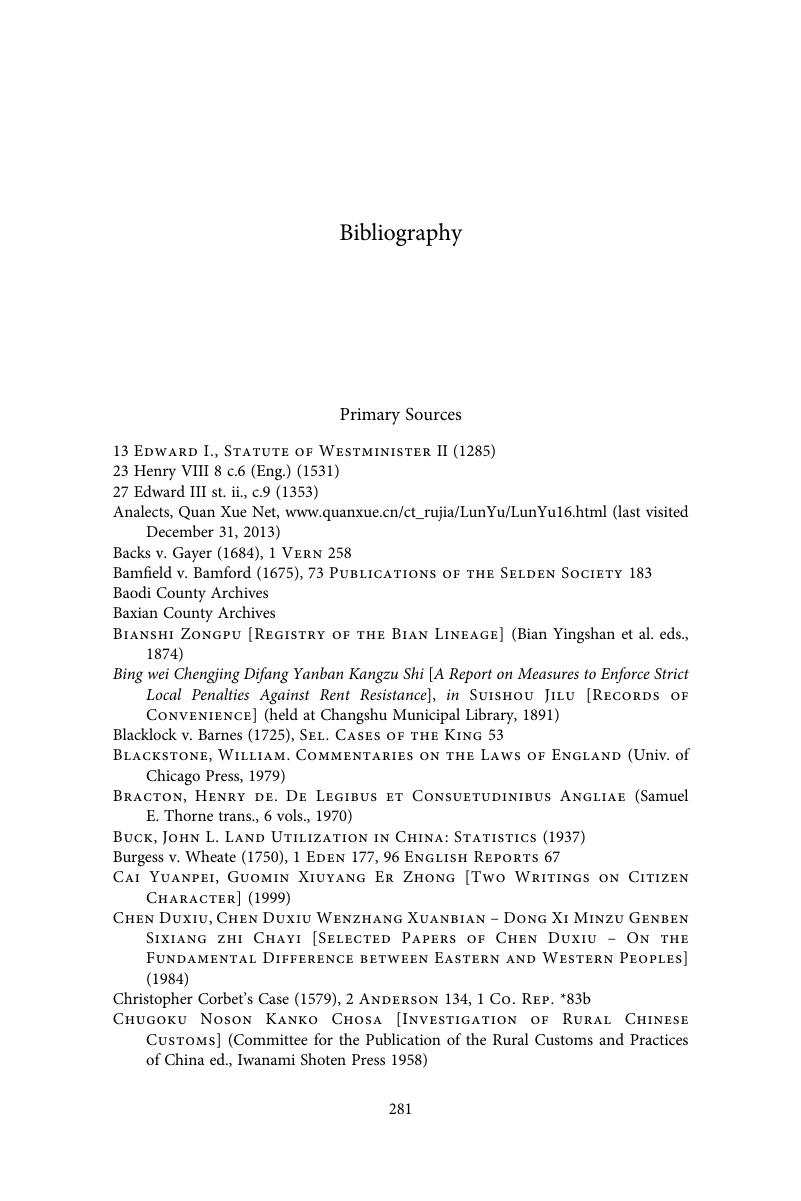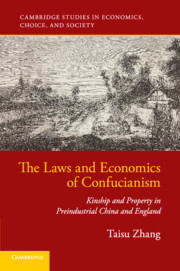Book contents
- The Laws and Economics of Confucianism
- Cambridge Studies in Economics, Choice, and Society
- The Laws and Economics of Confucianism
- Copyright page
- Dedication
- Contents
- Acknowledgments
- Introduction
- 1 Dian Sales in Qing and Republican China
- 2 Mortgages in Early Modern England
- 3 Kinship, Social Hierarchy, and Institutional Divergence (Theories)
- 4 Kinship, Social Hierarchy, and Institutional Divergence (Empirics)
- 5 Kinship Hierarchies in Late Imperial History
- 6 Property Institutions and Agricultural Capitalism
- Conclusion
- Book part
- Bibliography
- Chinese Terms
- Index
- References
Bibliography
Published online by Cambridge University Press: 21 September 2017
- The Laws and Economics of Confucianism
- Cambridge Studies in Economics, Choice, and Society
- The Laws and Economics of Confucianism
- Copyright page
- Dedication
- Contents
- Acknowledgments
- Introduction
- 1 Dian Sales in Qing and Republican China
- 2 Mortgages in Early Modern England
- 3 Kinship, Social Hierarchy, and Institutional Divergence (Theories)
- 4 Kinship, Social Hierarchy, and Institutional Divergence (Empirics)
- 5 Kinship Hierarchies in Late Imperial History
- 6 Property Institutions and Agricultural Capitalism
- Conclusion
- Book part
- Bibliography
- Chinese Terms
- Index
- References
Summary

- Type
- Chapter
- Information
- The Laws and Economics of ConfucianismKinship and Property in Preindustrial China and England, pp. 275 - 280Publisher: Cambridge University PressPrint publication year: 2017



